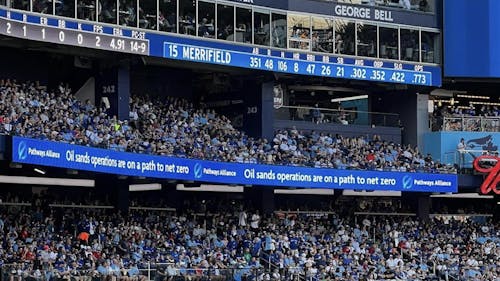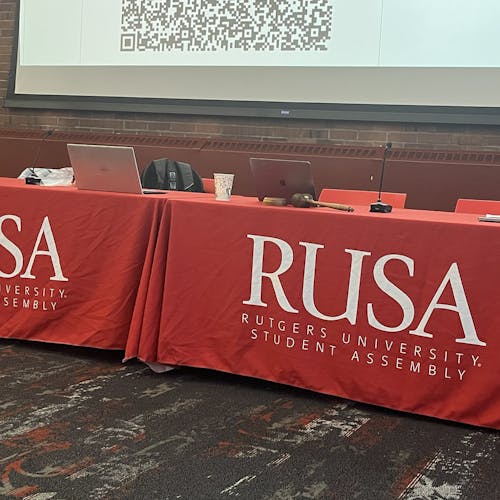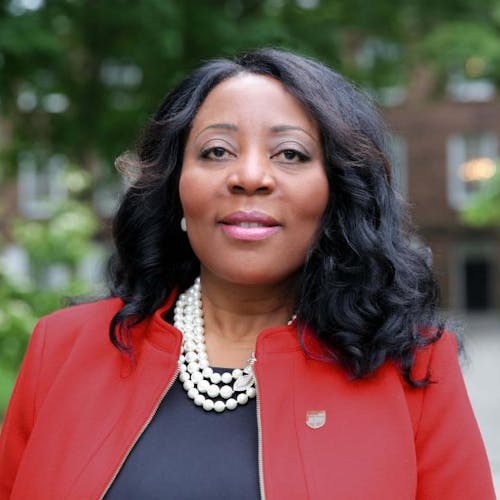U. professor publishes research on greenwashing, reveals how companies manipulate consumers

Melissa Aronczyk, director of the Ph.D. program in the School of Communication and Information and professor in the Department of Journalism and Media Studies, recently published her research on greenwashing in marketing.
Aronczyk spoke with The Daily Targum about her research and its implications for marketing and corporate environmental policy.
Her research, titled "Greenwashing, net-zero and the oil sands in Canada: The case of Pathways Alliance," will be in the 112th volume of "Energy Research & Social Science," which is set to be published in full in June.
Aronczyk said her research focused on the Pathways Alliance, a coalition of Canada's six largest oil sands companies. She said the coalition consists of Canadian Natural, Cenovus Energy, ConocoPhillips Canada, Imperial Oil, MEG Energy and Suncor Energy. Aronczyk explained Pathways Alliance claims its mission is to reach net zero by 2050, meaning the companies would be reducing their carbon emissions by that proposed year.
This is called greenwashing, which Aronczyk defined as a company misleading its audience into believing it is more ecologically progressive than it is. In her research, she said her team established a framework to identify greenwashing and understand how these companies are manipulating their consumers.
Aronczyk provided examples of actions that would fall within this framework, such as selective disclosure, which is when a company partially withholds information in its public messaging, like stating its net-zero mission without supporting it with evidence. Another method used by these companies is a call to gather everyone in the country for the mission, thereby incorrectly assigning equal responsibility to companies and individuals.
"That's when a company will say something like, 'We can all get to net zero together as a society, and we're helping.' Once again ... the suggestion is that the only way this company is going to get to net-zero is if all of us, as individual consumers, as political leaders, help the company get to net-zero," she said. "It's true that climate action and reducing global emissions does need each and every one of us to do something about it. But we shouldn't be made responsible for what a fossil fuel company is doing with its production systems."
For her research, Aronczyk said she and her team examined all media messaging from the Pathways Alliance for two years, such as podcasts, press releases, news coverage and archival evidence. She said they then analyzed this information to see how companies' methods and language changed over time to shape their consumers' perspectives.
By the end of the project, Aronczyk said the research's findings, which concluded that the Pathways Alliance is engaging in greenwashing, were unsurprising. She said these companies publish messaging with vague remarks with no concrete measurements or responses to critical questions.
She said greenwashing has larger, more lasting effects on the industry, as companies that engage in it tarnish the industry's reputation and foster public mistrust.
"There might be some oil and gas companies genuinely trying to do better," Aronczyk said. "But that kind of misleading messaging from the major producers is going to have a trickle-down effect on the entire sector and make people even more suspicious of the activities of these companies."
Aronczyk said organizations are implementing stricter standards regarding how companies can market to their consumers. She said journalists and regulators largely contribute to holding these companies accountable for their misleading messages. The Canadian Competition Bureau, an independent group that investigates manipulative business tactics, does similar work in Canada, she said.
Within the Rutgers community, Aronczyk said students should be cognizant of practices like greenwashing. She said University-wide efforts could induce impactful change in the greater issue of global warming, she said.
"I think for us, as a University, as a community, the more we can develop that kind of protective strategy to question advertising messages and not just let them go by and not do anything about them … the more we can hold them to account for their failure to act on global warming and really help make a difference," Aronczyk said.



